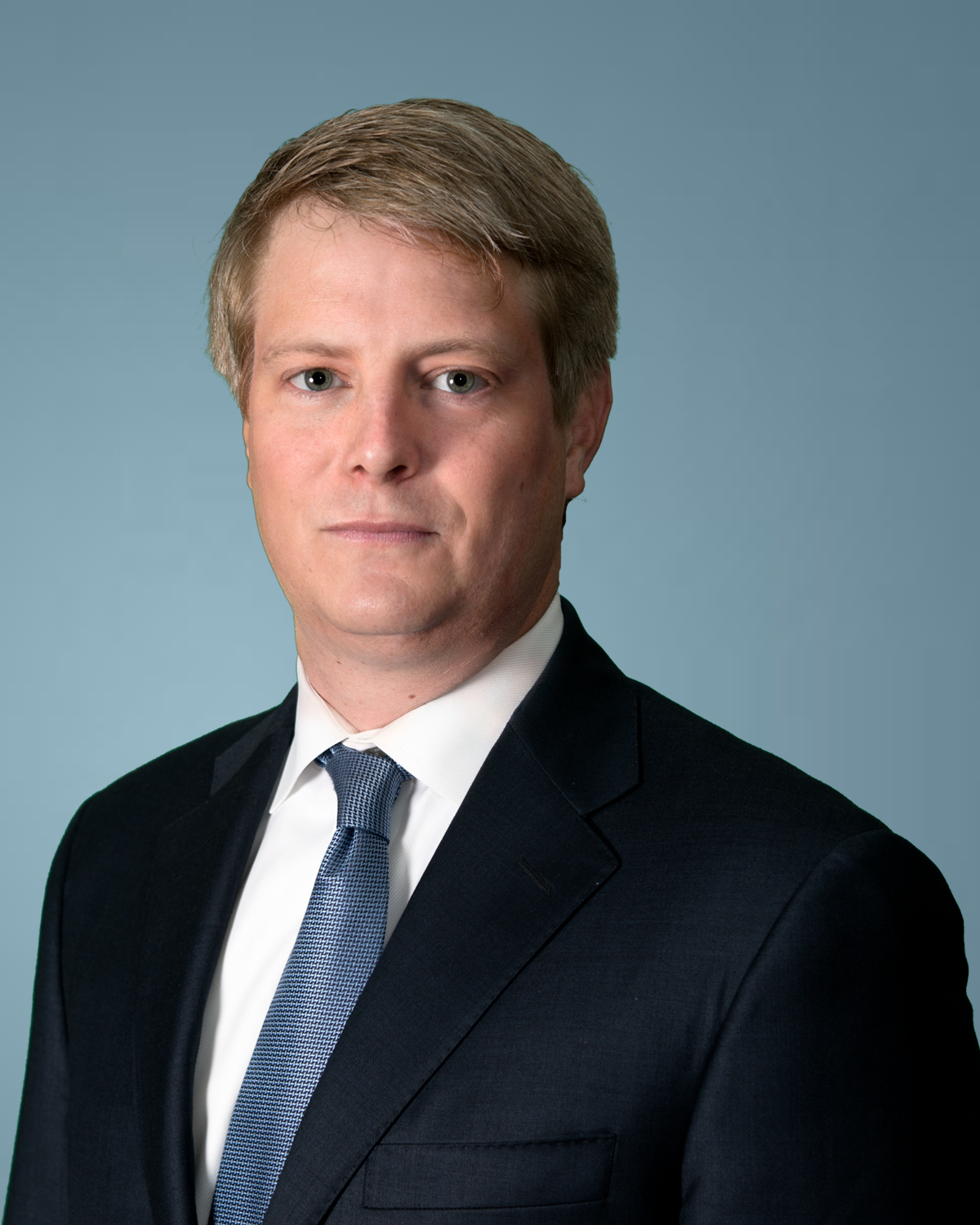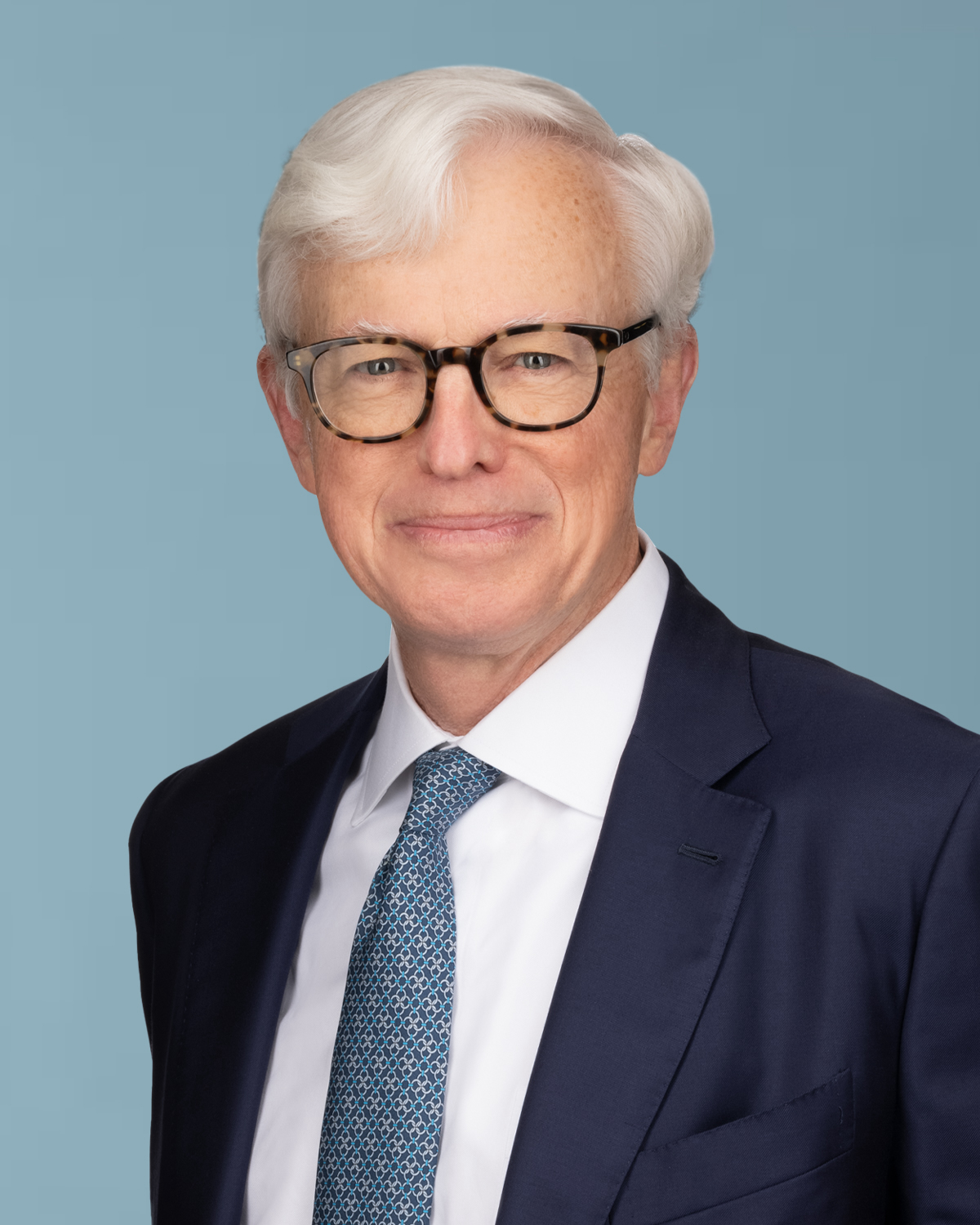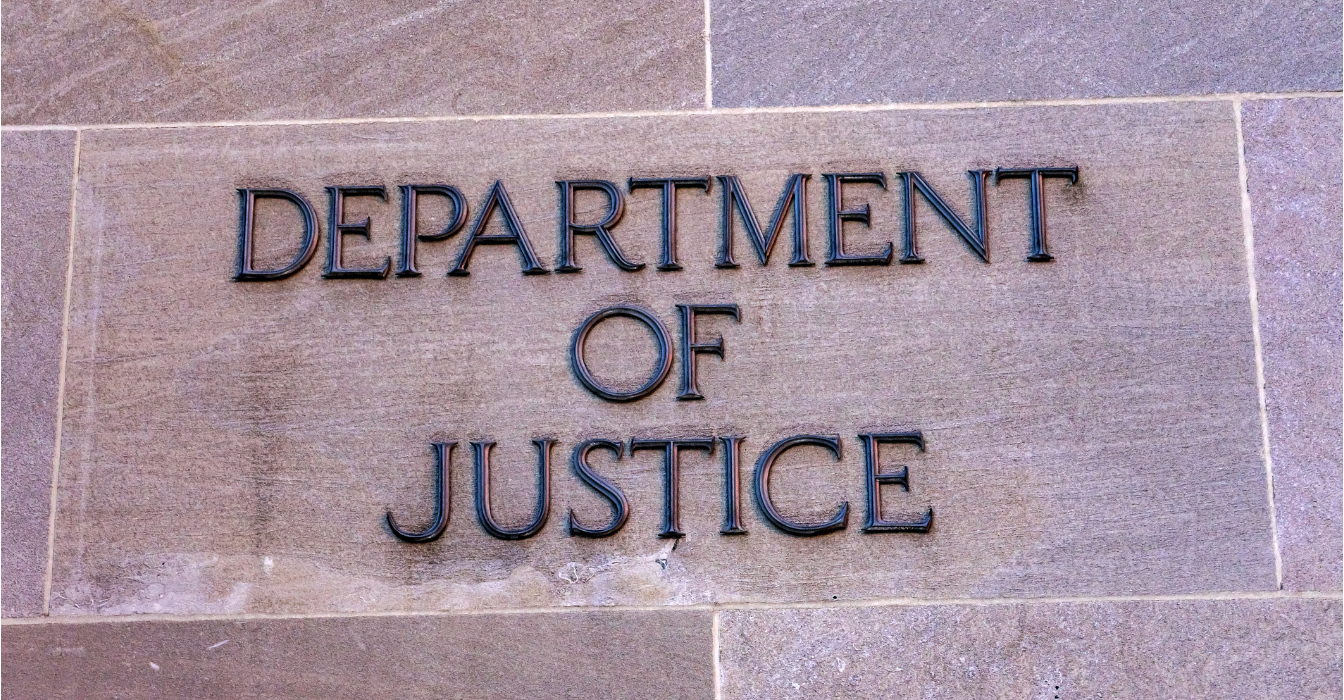John Fagg and Jim McLoughlin Talk Trends in White Collar Criminal Enforcement and Investigations in the Last Quarter of 2024
As we head into perhaps the most consequential election of our time, the lawyers handling white-collar criminal defense and investigations are parsing through the Department of Justice’s recent enforcement actions, and how the focus may or may not shift with the pending regime change.
John Fagg and Jim McLoughlin, top white collar defense litigators at Moore & Van Allen, will tell you there are some interesting trends developing of late in the world of white-collar criminal enforcement and some longer term trends that continue with greater force. When it comes to things like executive liability, bribery, whistleblowing incentives, and the trickle-down effects of the Trump immunity decision – there is a lot to stay tuned into.
“For a variety of reasons, the stakes for the Justice Department are always so high,” says McLoughlin, whose resume boasts over 35 years of civil dispute, criminal investigations and trial law. “There seems to be this underlying feeling recently within the Department that they're not having the impact that they want to have."
The attorneys are seeing continued focus on individuals and an effort to impose significant prison terms. This could be politically related in terms of perspective, but as they see it, the regulators appear to be looking for ways to inflict more pain in order to increase deterrence.
For example: Whistleblower incentives. The Department of Justice is making ample use of financial incentives aimed at encouraging and supporting whistleblowers, which can balloon into the millions. The financial incentives that they're providing are significant, which they're hoping will provide traction. While the program may be helpful in rooting out issues, the paydays can cast suspicion in the eyes of jurors.
“It's one thing to say that you've got a cooperating witness who's testifying with a non-prosecution agreement – jurors understand that,” says Fagg, a busy white collar defense attorney who represents both corporations and individuals in an array of criminal matters. “But when you say that somebody has the ability to obtain tens of millions of dollars, that is just incredible cross-examination fodder.”
Lawdragon: How big do these whistleblower incentives get?
Jim McLoughlin: The current information is that it's 30 percent of the first $100M of net proceeds obtained by the Justice Department, and 5 percent of the next $400M.
LD: You could see how someone might cross the street for that.
John Fagg: The financial incentives are very similar to the programs in place with the SEC and the CFTC. So, if there's a criminal penalty assessed, the government will continue to give restitution to the victims, but a portion of those recoveries can go to the whistleblower. Every year, the CFTC and the SEC release the total amount of whistleblower recoveries that were awarded in their matters and there are instances where those recoveries for whistleblowers have been in the tens of millions. While that incentive is very good for attracting whistleblowers, it really creates a lot of areas for defense counsel for cross-examination.

We're observing that the Department of Justice is continuing to pour resources into their whistleblower program – they appear to be putting their money where their mouth has been. They are hiring experienced federal prosecutors into their whistleblower program. And there are statements coming out from senior leadership, almost on a weekly basis, highlighting the types of cases coming to them through the whistleblower program. There are concerns however, relating to the financial incentives that these programs offer. In the criminal prosecution context, it will be interesting to see how the government deals with that from a cross-examination standpoint, if and when they bring cases that originated with a whistleblower. While the government doesn’t discuss specific matters – especially on-going matters, they have been outspoken that these initiatives have led to substantial matters both at Main Justice and at U.S. Attorney's offices.
LD: So you’re saying defense lawyers will be taking that all into account?
JM: Yes. If you have a case where an individual has already been sentenced and they cooperated and were eligible for a reduction in their sentence, the classic Section 5K1.1 downward departure, that has always been a huge feature of cross-examination of the witness. It's an interesting question, emotionally – will a jury think a bigger incentive is getting out of jail three years earlier, or getting $20MM whistleblower award? There are probably people who would spend three years in jail for $20M.
JF: If an individual is being prosecuted, there may well be a corporate resolution that has already occurred that resulted in a big penalty. It's going to create an interesting dynamic because usually the defense counsel is trying as hard as they can to exclude that corporate guilty plea or that corporate DPA from evidence in the trial. But in order to show bias in the cross-examination, you're going to have to think very strategically and creatively about whether and how to use that corporate resolution, because the whistleblower award that can follow will likely still be a lot of money in the eyes of the average juror.
LD: You’ve been busy since we last spoke. Now we’re headed into an election. What sort of impact do you think the regime change might have on white collar criminal enforcement?
JF: We’ve seen a number of departures from civil and criminal enforcement authorities, including from U.S. Attorney's offices and Main Justice. Just the other week the Director of Enforcement from the SEC announced his departure. There's been relatively little turnover in the senior ranks within the enforcement divisions in the Biden administration, but you're certainly starting to see those now.
I do think that depending on the outcome of the election, we could see substantially more departures from the line prosecutors and line enforcement attorneys. I won’t be surprised if we see a lot of new faces coming into these different organizations over the course of the next six months.
The Department of Justice is continuing to pour resources into their whistleblower program – they appear to be putting their money where their mouth has been.
LD: What else have you been seeing from regulators lately?
JM: Prosecutors are also looking for ways to increase penalties. The loss amount is the biggest factor for penalties on economic crimes, which is generally what corporate crimes are. The U.S. Sentencing Guidelines have always been about the loss, but there's a note in the commentary that says loss could be the intended loss, not the actual loss, but the courts have said that's only applicable if the Guideline is ambiguous.
Just in the last few years, they’ve really started to push this notion that they're going to go for the greater of the intended loss or the actual loss. If you think about a place where the intended loss is $2M and the actual loss is $100,000 – that dramatically increases the sentence that the guidelines predict that an individual should have. The Sentencing Commission has now officially changed that guideline and that's going to be effective November 1st.
We’re seeing the Justice Department trying to ratchet-up the pressure every way they can. This indicates two things – a level of frustration that they haven't had a bigger impact, and an intention to be more aggressive with individuals and penalties moving forward.
LD: What’s the latest in the attempt to regulate cryptocurrency?
JM: What's interesting about that to me is, the industry is under an awful lot of heat from regulators, but the methodologies are not new. It's wire fraud, it's mail fraud – it is the classics. It's not about crypto as much as it is about fraud, just using a fill-in-the-blank device or mechanism when it's crypto. Also, they're clearly doing the equivalent of market surveillance, because it's a new product, but they're using the tried and true methods by the tried and true people, like the Fraud Section of the Criminal Division.

JF: One of the reasons why there is a focus on crypto is because there have been such significant gains by defendants in those cases. If you look at the case with Sam Bankman-Fried, and the sentence he received in the Southern District of New York, and you look at the sentence his former girlfriend, Caroline Ellison, got. She flipped immediately and cooperated extensively with the U.S. Attorney's Office and also with the SEC, and she sought a non-custodial sentence and the Probation Department recommended one. But Judge Kaplan was unwilling to give her a non-custodial sentence given the amount of ill-gotten gains that the court found that she received notwithstanding her extensive cooperation with federal prosecutors and the FTX bankruptcy estate. She received a sentence of two years in prison, a much lighter sentence than Bankman-Fried’s 25 year sentence, but it the loss amount was a very significant factor in the court's decision to sentence her to two years in prison.
LD: This summer the Supreme Court’s decision in the Snyder case determined that gratuities are not in violation of the anti-bribery statute. What’s been the impact of that ruling in bribery cases?
JF: We are seeing continued vigor by the government in going after corruption cases. You saw that with [U.S. Sen. Bob] Menendez, who was charged before the Snyder case came down. Then of course, the indictment of [New York Mayor] Eric Adams came down last month. There are a number of U.S. Attorney’s Office around the country that are continuing to vigorously pursue those cases – it seems that the government is trying to find cases to bring to get more clarity. I think that there is a general belief by federal prosecutors that they should be stamping out this allegedly corrupt activity. I also think that there is an effort on their part to get some more definition around the law and perhaps some concern that the Supreme Court decision in Snyder is being interpreted too broadly.
It's been very interesting in the Adams case because immediately after the indictment, his lawyers filed a motion to dismiss the bribery count in the indictment, saying that the conduct that's described in the indictment as to bribery is on all fours with the Snyder decision, and what is being described is not a crime because there was no quid pro quo. That this is just the way that politics work. So that issue is going to be heavily litigated in the Adams case.
It has a chilling effect when federal prosecutors are aggressively going after the statements that lawyers are making to prosecutors as the basis for other criminal charges.
What the government is trying to do in all of these cases is to highlight what they believe are the very bad facts. So, you have the gold bars with Menendez. You have Eric Adams changing his password after he learned of the investigation. You've got text messages with him and his aides saying that his name won't be on anything. Then you have the text message exchange that Mayor Adams had himself where he is alleged to be talking about deleting messages.
We think that the government is going to continue to seek out those cases where they find the conduct unseemly in order to try and put some parameters around the Snyder decision and limit its application moving forward.
LD: That’s so interesting. How is this affecting defense counsel?
JF: One of the allegations in the Menendez case is related to his efforts to obstruct the investigation. They say that Menendez knowingly misled his lawyers into making a false proffer to senior officials within the U.S. Attorney's Office to not bring charges against the senator. That's not an allegation that is made very often. Obviously when you're coming in and making a proffer to the prosecutors, it is an adversarial proceeding at its core. But every defense lawyer knows the importance of being truthful in your presentation, which requires testing and confirming facts. Here, the prosecutors say the defense attorneys in this case were unwittingly involved in these misrepresentations. Nonetheless, it has a chilling effect when federal prosecutors are aggressively going after the statements that lawyers are making to prosecutors as the basis for other criminal charges.
LD: How about the Supreme Court’s ruling this summer on presidential immunity? How broad is that impact going to be, do you think?
JM: Well, you may see public officials accused of wrongdoing who start saying, "I was acting in my public capacity." The Justice Department clearly can’t be too happy about that. And so, you have this situation where you’re either getting clarity or getting pushback. The Justice Department finds itself in a position where it thought it knew what the rules were and now they don't.
There are other ways to try and attack this. Is the president unique in having immunity? Or does it apply to all federal officials? All state officials? Just the executive branch? Where does that go? The Supreme Court is creating some uncertainty for the Justice Department, and the Justice Department, it appears, is trying to navigate its way around that to make sure it knows what the rules are and maybe establish some rules. And that's likely to continue because the constituency of the Supreme Court isn't likely to change anytime soon.
Since January 6th, the stakes for the Justice Department are so high. January 6th was such a unique event that I think you have to be careful about drawing any conclusions about what follows that. I think it's really hard to tell at this point.


